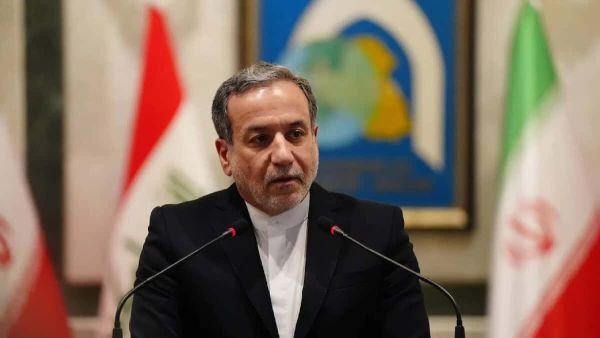
Tehran: Iranian Foreign Minister Seyed Abbas Araghchi has accused the United States and its allies of undermining international law and pushing the world towards what he described as a “force-based international order” rooted in coercion and militarisation.
Opening the high-level conference International Law Under Assault, Aggression, and Self-Defence at the Institute for Political and International Studies (IPIS) in Tehran on Sunday, November 16, Araghchi said the post-Second World War legal framework was facing an “unprecedented and dangerous” erosion.
He claimed that Western governments had shifted from a law-based system to a politicised “rules-based order” shaped to advance their own geopolitical interests.

Araghchi claimed Washington had advanced this shift further by promoting an approach based on domination rather than consensus-building. Rising global military expenditure, widening geopolitical divisions and repeated breaches of state sovereignty, he said, reflected a growing departure from universal legal principles.
The foreign minister launched a strong critique of the United States, saying its doctrine of “peace through strength” effectively amounted to “hegemony through brute force”. He linked recent American actions to what he called a return to the “law of the jungle”, citing US support for Israeli military operations and actions targeting Iranian interests.
Referring to the June 13 Israeli strike on Iranian territory, Araghchi said the attack—carried out under US direction—hit civilian areas and peaceful nuclear facilities in “clear violation” of the UN Charter and international non-proliferation norms. He maintained that Iran’s response was executed under Article 51 of the UN Charter and followed the principles of necessity, proportionality and distinction.
Araghchi also accused Israel of “genocide, ethnic cleansing and systematic violations” of international humanitarian law across West Asia. He said the Israeli military had attacked seven countries in the past two years and continued to pursue expansionist goals with Western support.
Despite warning that the global legal system is under severe strain, Araghchi insisted it remains viable if states act collectively to defend it. He called for a return to genuine multilateralism, equality among nations and strict adherence to the prohibition of force except in legitimate self-defence.
He said the world now faced a choice between “an order rooted in domination and militarism” and “a universal legal order grounded in dialogue, equality and the UN Charter”.
Araghchi reaffirmed Iran’s commitment to a law-based international system and urged the creation of a regional security architecture built on cooperation and “sustainable trust”, stressing that Iran regards the security of neighbouring states as integral to its own.
The one-day conference brought together diplomats, scholars and legal experts from Asia, Africa, Europe and Latin America to discuss the mounting challenges facing international law amid rising militarisation and geopolitical tensions.